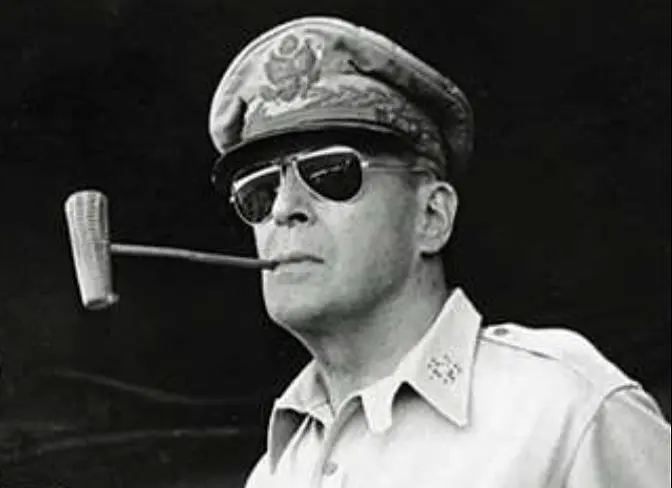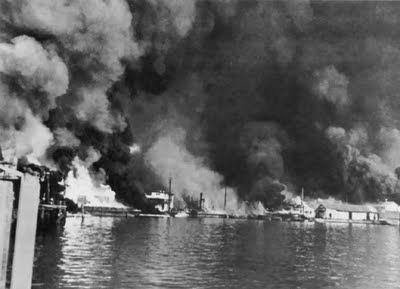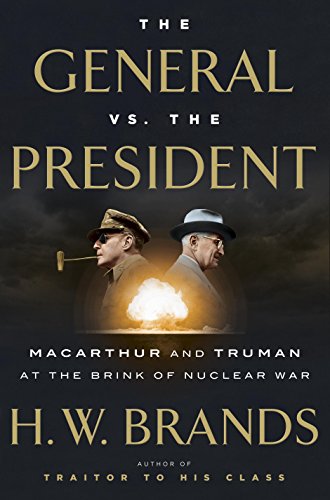I shall return MacArthur
General MacArthur and the Defining Days After Pearl Harbor
By Ken Zurski
In the book The General vs the President, author H.W. Brands examines the often tenuous but respectful relationship between General Douglas MacArthur and President Harry Truman.
Besides their differing personalities, in the public eye, the two men drew widely opposite impressions. Truman had unexpectedly assumed the presidency amidst doubts about his leadership and foreign policy experience while MacArthur was the beloved general of the Allied forces in the Pacific.

After World War II ended and when North Korea threatened South Korea, both men had vastly different views on how America should proceed.
Truman gave MacArthur leverage, but China was drawn into the conflict and the two world powers were nearly brought to the brink of a nuclear war. Truman relieved the popular general of his duties. “With deep regret I have concluded that General of the Army Douglas MacArthur is unable to give his wholehearted support to the policies of the United States Government and of the United Nations in matters pertaining to his official duties,” Truman announced at a press conference. That explosive missive is the basis of Brand’s book.
But Truman, as important as he was to ending the war, was just a senator from Missouri when President Franklin Roosevelt crossed ways with MacArthur.
That relationship nearly reached the boiling point in 1941, shortly after Japan attacked Pear Harbor.
It’s worth a closer look.
MacArthur who is in the Philippines at the time Pearl Harbor was attacked feared the American bases on the island would be next. He was right. The next day, December 8, Japan hit hard. MacArthur asked Roosevelt to immediately strike back. Force Russia to attack Japan, he pressed, before Japan can do more damage in the Philippines. Roosevelt ignored MacArthur’s plea and set his sights on Germany instead.
MacArthur rebutted. He supported a plan by Philippine President Manuel Quezon to broker a peace deal with Japan. It was the only way, MacArthur agreed, to avoid a “disastrous debacle.”
In retrospect, Brands assumes, MacArthur was abandoning the Philippines. But there were lives at stake. A defiant Roosevelt dismissed the peace deal. “American forces will continue to fly our flag in the Philippines,” the president commanded, “so long as there remains any possibility of resistance.”
Back home, MacArthur was being criticized for poor decision making.
Brands points out the there was a nine-hour window after the first dispatches were received that Japanese bombers were in the air. There was nothing anyone could do about the battleships in the Harbor; but in the Philippines, in hindsight, why didn’t MacArthur order the planes moved out of the way?
MacArthur blamed his subordinates and miscommunication. Nevertheless, half of MacArthur’s forces were decimated in the attack and the Philippine’s line of defense was greatly diminished.
It would get worse. The conquest of the Philippines by Japan is still considered one of the worst military defeats in U.S. history.

MacArthur endured attacks from Japan forces by hunkering down on the Bataan peninsula and Corregidor Island. “Help is on the way,” MacArthur told the men. “Thousands of troops and hundreds of planes are being dispatched” he continued, hoping to boost morale.
None of it was even being considered.
The only order coming from Roosevelt was getting his four-star general out of the islands before all hell broke loose. MacArthur had no recourse. It was an order, not a choice. He took the next plane out and flew to Australia where he was to organize the counter offensive against Japan and pave the way to his own interminable place in American history. Roosevelt would later praise his departure, but MacArthur felt like he was abandoning his post.
Before boarding he told the troops, “I shall return.”
When MacArthur did return three years later he was hailed as a hero. “Though not by American soldiers he left behind [in the Philippines],” Brands writes in the book.

